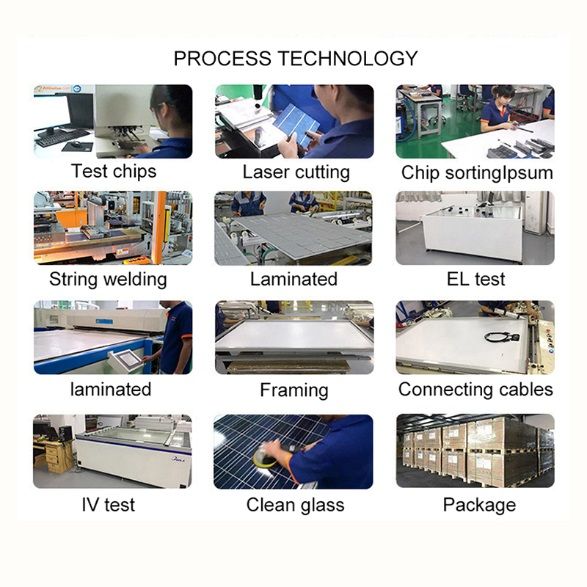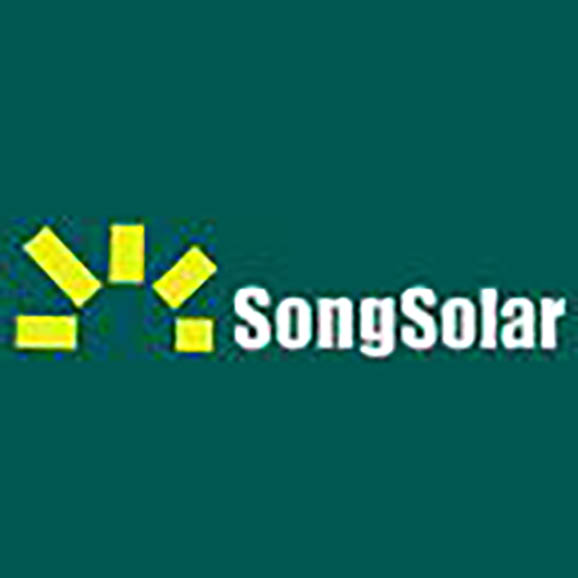Monocrystalline Solar Panels Pv Modules 20w-550w
Short Description:
Technical Data
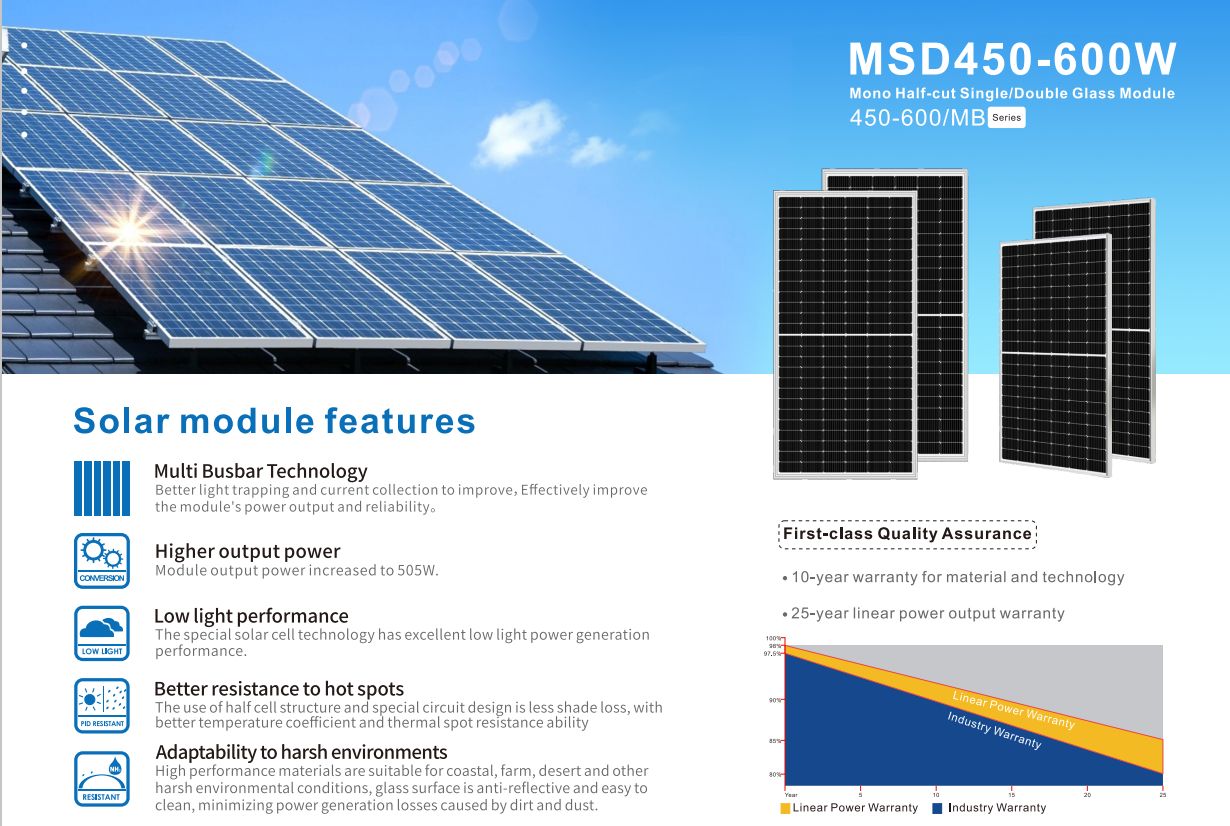
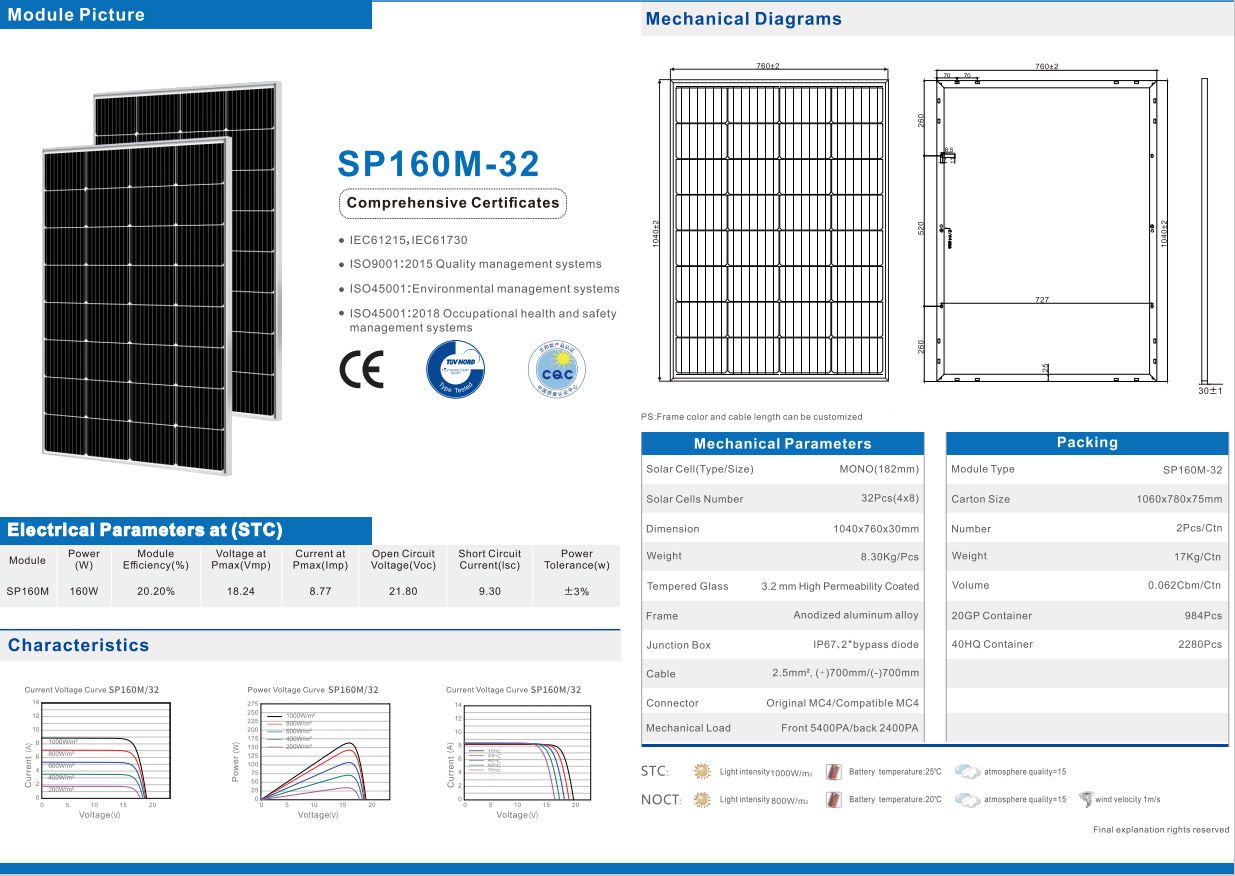
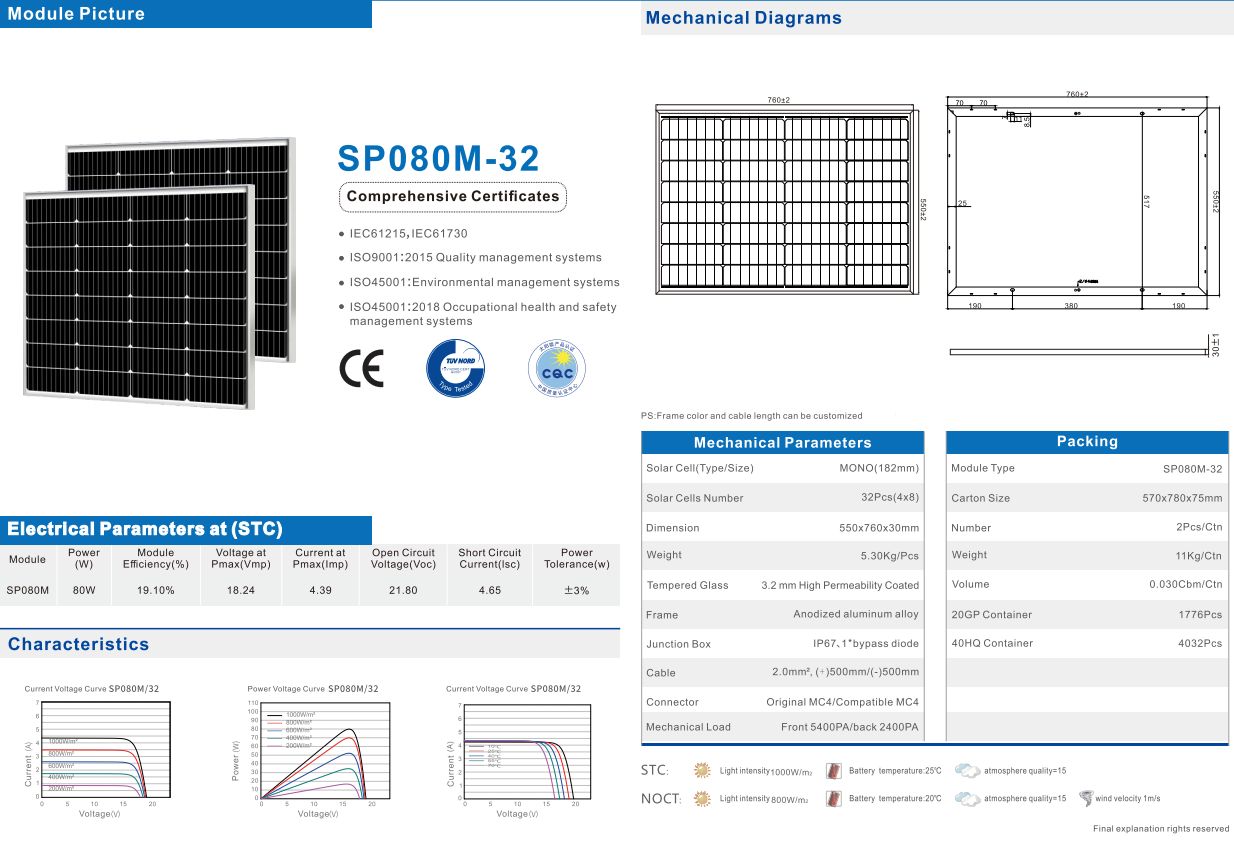
Product Introduction
Product ranges: 20W 30W 50W 60W 80W 100W 120W 150W 180W 200W 240W 300W 350W 400W 410W 450W 500W 520W 530W 540W 550W
Materials : monocrystalline silicon, Polycrystalline silicon, Thin film
Solar panels are built to work in all climates, but in some cases, rooftops may not be suitable for solar systems due to age or tree cover. If there are trees near your home that create excessive shade on your roof, rooftop panels may not be the most ideal option. The size, shape, and slope of your roof are also important factors to consider. Typically, solar panels perform best on south-facing roofs with a slope between 15 and 40 degrees, though other roofs may be suitable too. You should also consider the age of your roof and how long until it will need replacement.
If a solar professional determines that your roof is not suitable for solar, or you don’t own your home, you can still benefit from solar energy. Community solar allows multiple people to benefit from a single, shared solar array that can be installed on- or off-site. Costs associated with purchasing and installing a solar energy system are divided among all of the participants, who are able to buy into the shared system at a level that best fits their budget. Learn more about 3s solar.
What Are The Environmental Benefits Of Solar?
Using solar power instead of conventional forms of energy reduces the amount of carbon and other pollutants that are emitted into the environment. Reducing the amount of carbon in our atmosphere translates into less pollution and cleaner air and water.
Is solar safe?
Absolutely! All solar panels meet international inspection and testing standards, and a qualified installer will install them to meet local building, fire, and electrical codes. Also, your solar energy system will undergo a thorough inspection from a certified electrician as part of the installation process.
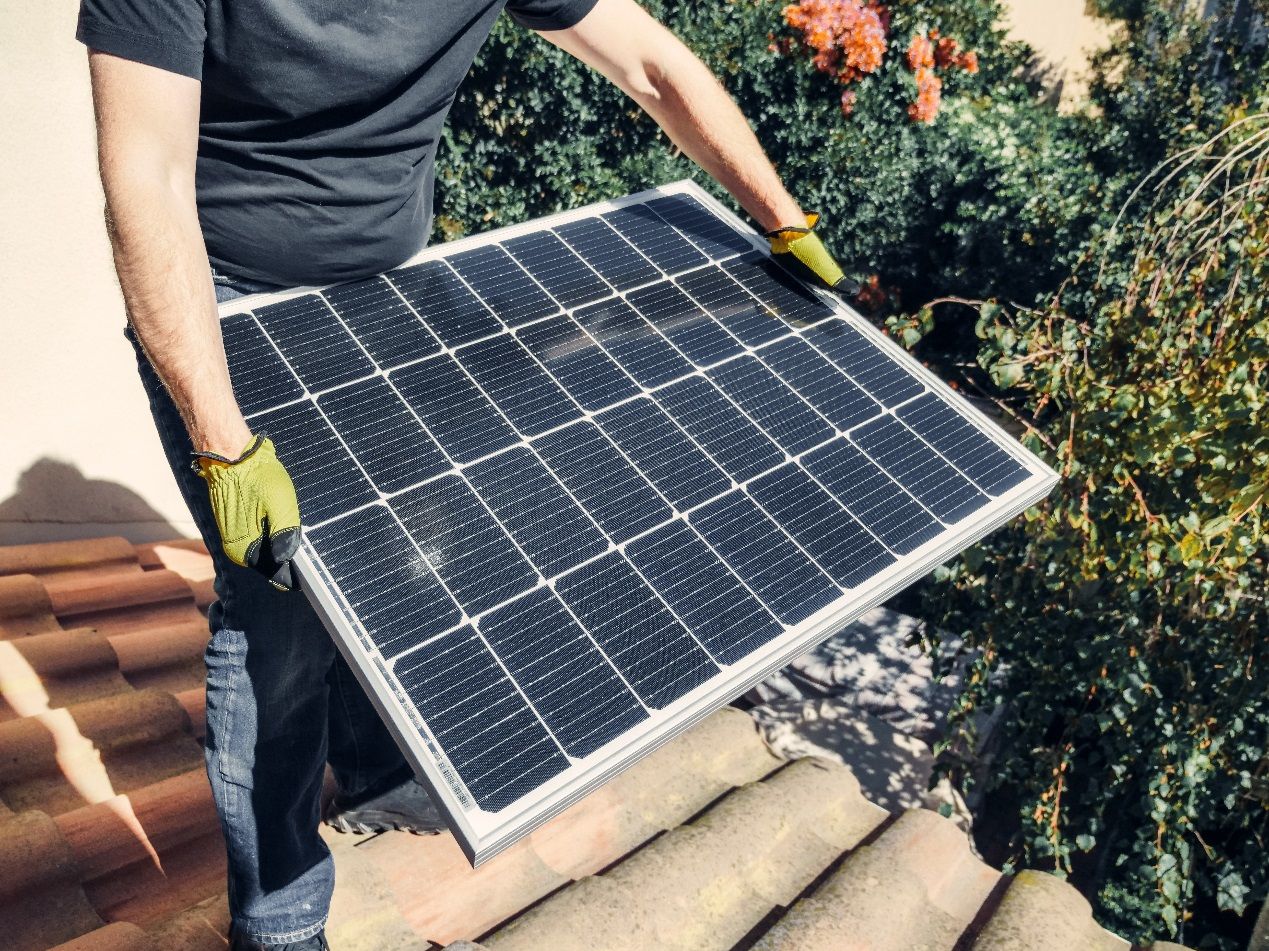
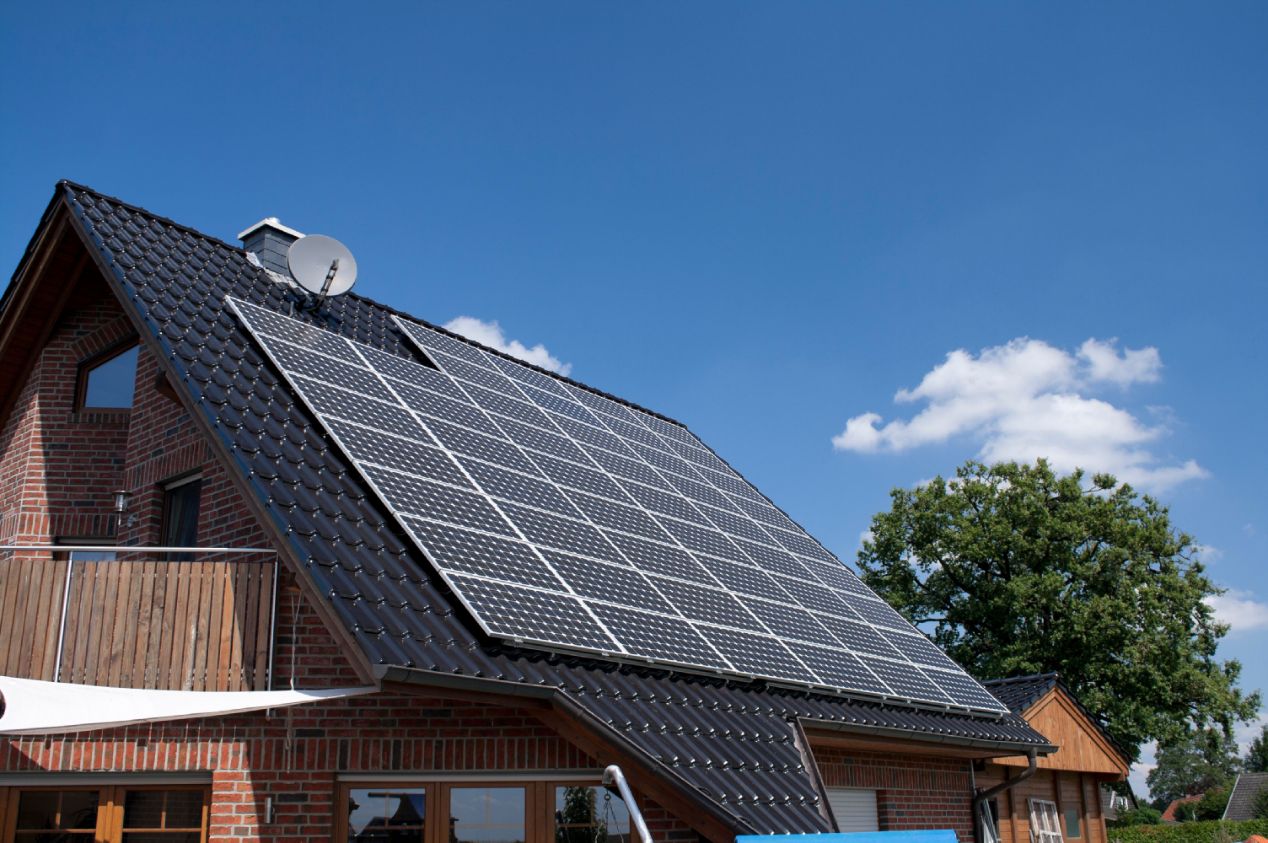
Evaluate your sunlight exposure
More sun means more energy produced and a greater potential to save with solar. Certain states, like Arizona and California, average more sunlight hours per day.
Your home's orientation toward the sun, the amount of shade it gets, and its roof type also affect a solar system's output. You can estimate the efficiency of panels on your home by contacting us..
